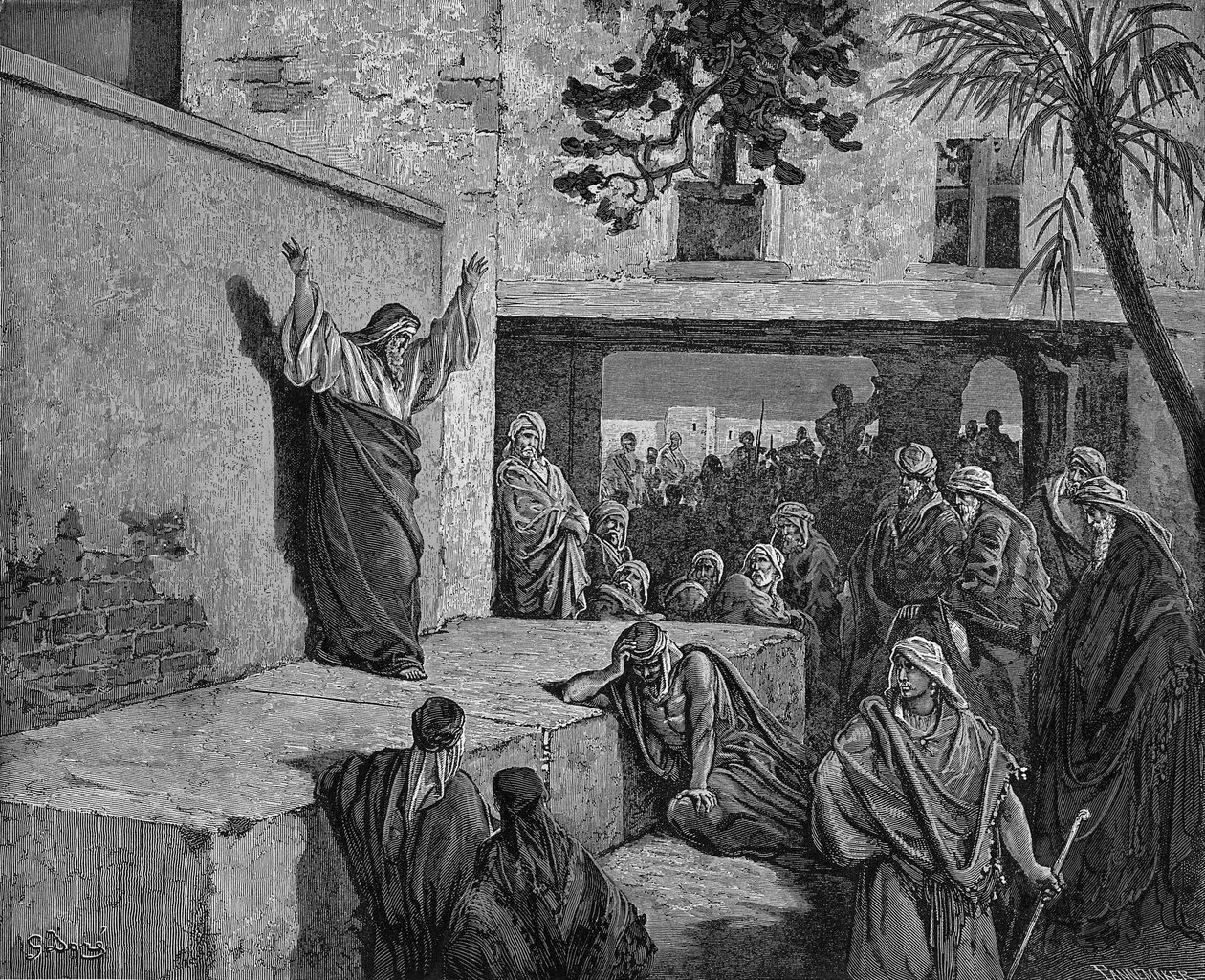Micah 1:1 – Introduction to the Prophet’s Message
Gustave Doré’s engraving “The Prophet Micah Exhorting the People of Israel to Repentence”
“The word of the LORD that came to Micah of Moresheth in the days of Jotham, Ahaz, and Hezekiah, kings of Judah, which he saw concerning Samaria and Jerusalem.” – Micah 1:1
God’s Word Through Micah
The prophecies and exhortations found in the book of Micah are claimed to be the Word of the Lord. This is important because Micah is not claiming these words as his own, but a message delivered from the covenant God of Israel. The people had violated God’s covenant and now the sanctions of the covenant would be acted upon by God himself. His word “came” to Micah and now Micah is acting as God’s messenger to the people.
In the same way, believers act as God’s prophets to the world around them. The meaning of prophet does not necessarily include prediction of the future, but a proclamation of God’s word. Micah’s prophecies included both predictions and calls to repentance according to violations of God’s law; however, believers today can also function as God’s mouthpiece insofar as they accurately handle His word within their society.
Rooted in Real History
Micah’s prophecy is rooted in real history. These messages would come within the reign of kings Jotham, Ahaz, and Hezekiah of the southern kingdom of Judah. Micah is a real person with a real story situated within the larger story of God’s dealings with His covenant people. This gives the words of Micah grit and traction to grab the attention of real people who had forsaken their God for false idols.
We also benefit from this timestamp because we can study the period of these kings and make appropriate applications to our own scenario at any point in church history. God’s word is given in time but it’s applicable for all time.
The Audience of the Prophecy
Finally we see the subject of these prophecies. Micah sees the word of the Lord for Samaria and Jerusalem. These are the capitals of the Northern and Southern kingdoms respectively. When we couple this information with the timestamp provided by the names of the three kings, we can understand what we expect to hear from Micah.
Samaria and Jerusalem didn’t just serve as the political capitals of each kingdom, they also served as the central worship centers. Samaria was famously known as a center for Baal worship especially under the rule of Ahab and Jezebel. This worship experienced rises and falls but still remained in practice up to this time. Jerusalem also experienced a revival of worship on the high places to serve false gods under the leadership of King Ahaz.
At the time of Micah’s prophecy, Assyria had grown in power and was knocking on the door of the northern kingdom. God’s people needed to repent of their idolatry or face the curses of the covenant at the hands of Assyria as God’s tool.
Application for Today
We face the same kinds of idolatry today. People forsake the worship of Christ for anything their heart desires. This has grown so prevalent that the church doesn’t look much different than the world in this respect.
Will we heed the words of Micah and repent? Will we act as prophets in our age and proclaim a message of faith and repentance in Jesus Christ by His grace alone?

